Last March, I was the lead local organizer for my team on a program we organized at the University of Cape Coast campus. My team, Alliance for Science, Ghana collaborated with two other groups on campus – The International Association of Students in Agricultural and Related Sciences (IAAS) and the Molecular Biology and Biotechnology Students Association of Ghana (MOBBSAG) to screen a movie titled FOOD EVOLUTION. At this event, I met this young man who played a very active role in the program’s organization. He seemed quite excited about the entire event and helped mobilize his peers to support. His name was Aaron Akukah. He was the IAAS president.
During the organization of the event, I noticed something compelling about this young man. He knew how to urge his people to get things done effectively and efficiently. I admired his skills, and so later, when we had some free time, I engaged him in a conversation seeking to know what his expectations of the event were, and what his thoughts on the turnout of his group would be. We talked about his studies and how he managed his position as president of IAAS alongside it.
I found out he was a third year student pursuing a BSc. in Agriculture. He told me he has a farm in addition, and is passionate about farming. Now, this caught my interest! I do hear this often but something about the way he said it piqued my interest and grabbed my attention. I asked him all about his farm and what he cultivates. It turned out this was a student demonstration farm he started with a couple of his course mates, most of whom had abandoned the project along the way. He seemed to be single-handedly managing it at the moment. I told him I would love to see it and he was happy about it. And, two weeks ago I did!
Aaron manages his own farm, with a size of a little over an acre on the University’s farmlands. The day I visited, he took me to his field and showed me all he’s been cultivating. We had a lengthy chat and I was really impressed with his work and touched by his story. When the university went on vacation, he decided to stay back to tend to his farm. Aaron grows maize and lots of assorted vegetables including carrots, lettuce, cucumber, radish, beetroot, cabbage, okra, garden eggs, hot pepper and sweet pepper. He makes simple beds to nurse these vegetables and then transplants them when due. His crops had a good planting layout and looked very healthy. He said he’s yet to add broccoli to his cultivation. He shared with me his experiences, challenges and his hopes for the future in his chosen profession.
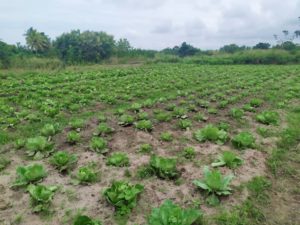
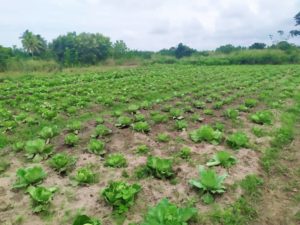
Aaron admitted his motivation to go into farming stemmed from the fear of the possibility of being unemployed after his undergraduate studies. He also garners lots of interest and new ideas, watching agricultural videos on YouTube. Now, he has developed a huge passion for farming and just can’t stop! When I asked him how he started, Aaron told me this:
“When I started out, I made a call to the Ministry of Food and Agriculture (MoFA) because I needed the right seeds to plant. I was asked to buy them but I had no money, so I borrowed GHC50 from the MTN Mobile Money loan facility to purchase the required seeds. Today I can proudly say I have recouped that investment and made a hundred times more in profits for myself. You see, before you get into anything like this, you need to also do a market survey to determine what people around you need or do not have. I did just that and identified the category of people that I would be producing for. It’s why my vegetables are always sold out immediately after harvest. Sometimes people order for them even before I harvest them.”
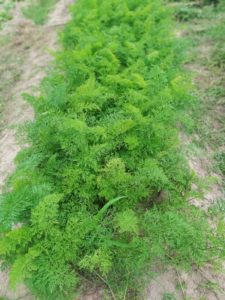
Aaron also shared with me his thoughts on the challenges he thinks hinders the youth’s involvement in agriculture based on his personal experience and involvement in the field:
“I think our educational system here does little to get students into the practical aspect of what they do. It’s mostly theory without the requisite practice. This does little to instill the interest of Agriculture in students even when they’re out of school. I have friends who can’t even do simple things like the transplanting of seedlings. If we can do a lot more field work, it would be very beneficial to the cause. It is also not easy to access startup capital around here.That discourages a lot of people from going into farming. Take my situation for instance, if I hadn’t gotten that loan, I wouldn’t be here. I think going forward, we should promote agriculture.
The government can scout for students who are interested in the practical aspects of what they do theoretically, and provide them with land and inputs, and also monitor and assist them to establish themselves in farming. There definitely will be a value chain and more people will be employed”
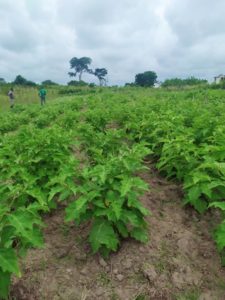
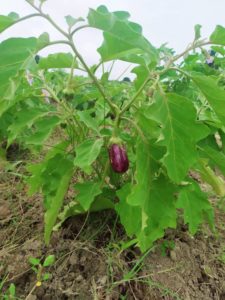
He further told me that though presently on a small scale, he makes good sales from his produce and is able to afford his needs for his studies. He also eats what he grows and doesn’t buy vegetables. We talked about challenges with the farm and he told me about problems he usually faces with his cabbage.
“When first I started my cabbage garden, it didn’t rain until after two months and a couple of weeks, later I begun to experience abnormal leaves which I think was as a result of pests. It hasn’t been easy but I try hard to make sure things go well on my farm“
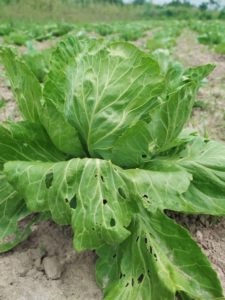
When I asked how he controls those, what he told me seemed to be the weirdest of methods. He said he harvests leaves of the neem tree and extracts the liquid content from them. He then grinds garlic and pepper, mixes it with water up to the 15 litre mark in a knapsack sprayer and adds 1 litre of the extracted neem content. He then sprays his cabbage with it. He says it is effective but also wearisome.
On his maize, he had beautifully growing plants and cobs that looked good. He was waiting to harvest them dry. Aaron told me he experiments with various planting distances and employs what he finds best.
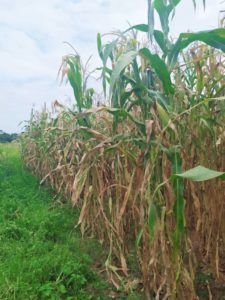
When I asked how he intends to keep farming after his undergraduate studies when he wouldn’t have any more access to the land he was currently cultivating, he had this to say:
“I’m investing the money I make. I need about GHC10,000 to acquire a piece of arable land. By the time I’m done with my studies, I should have the money ready to start my own production on a larger scale. I’m not going to wait to be employed by the government or anyone. I don’t think they can even pay me the kind of money I want (laughs). But I know Agriculture can. In the next 5 to 10 years, if you want the biggest exporter of beetroot in Ghana, it should be me!“
Now that statement sounded concrete!
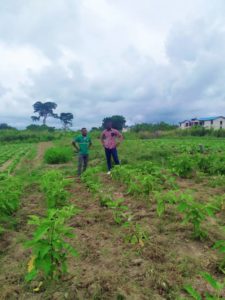
We took a walk off the farm and talked some more. I asked what he would tell young ones like himself to encourage them get into Agriculture. He told me this:
“Agriculture is a passion and you cannot succeed in it if you do not have that passion. You know most of our mineral resources come from the ground, be it oil, gold, diamond or manganese, and these are very important things. So is agriculture. That same soil or ground gives us food and I see it as a gold mine. The youth should know no other profession can pay them as well as agriculture can. It pays better than any profession I know of if done well, trust me. So, rather than sit around hoping to be employed by the government, why don’t we come together and link up, combine our knowledge and make it into a serious business. We should consider it. It is only by that, that we can improve our lives, curtail unemployment, hunger and disease caused by malnutrition. The crooked way of doing agriculture is over… we, the upcoming, need to bring to bear new techniques, modernized and improved technologies in farming to make it better“
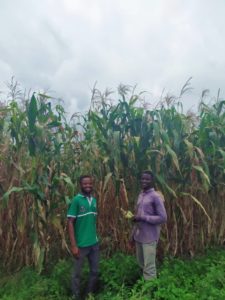
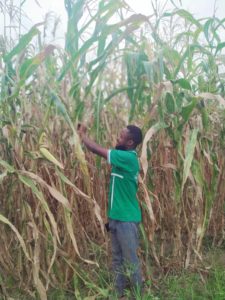
Personally I am inspired by Aaron. I’m considering going into farming and maybe you should too. Next time I visit him, I told him, I hope to see a bigger farm. And I will share with you what I see.
By: Dennis Baffour-Awuah

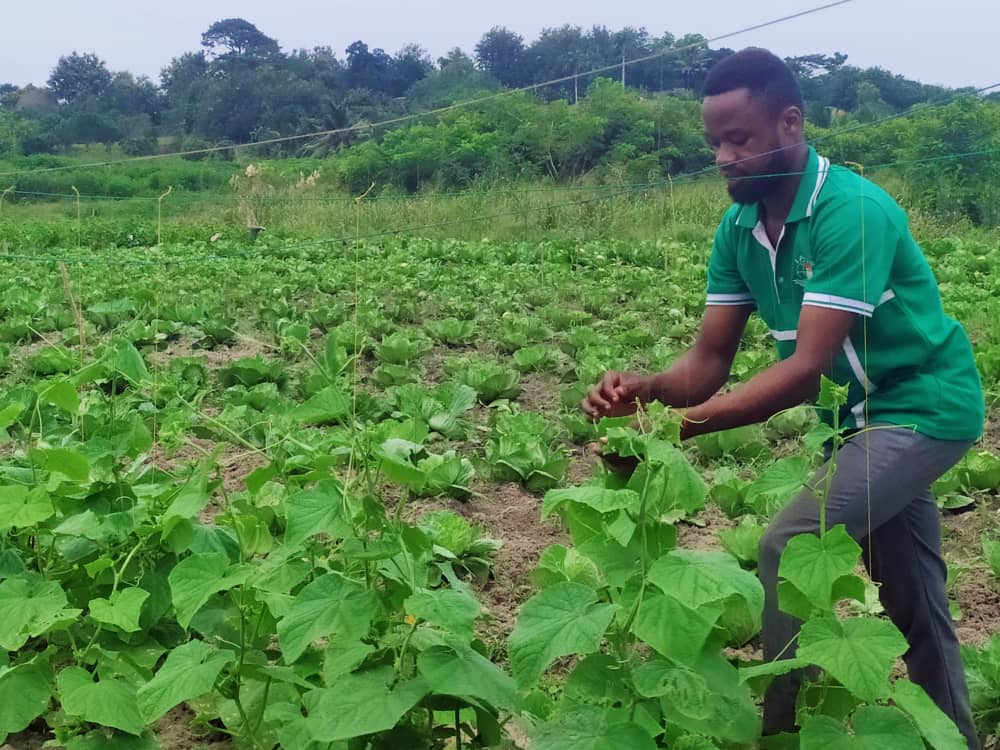
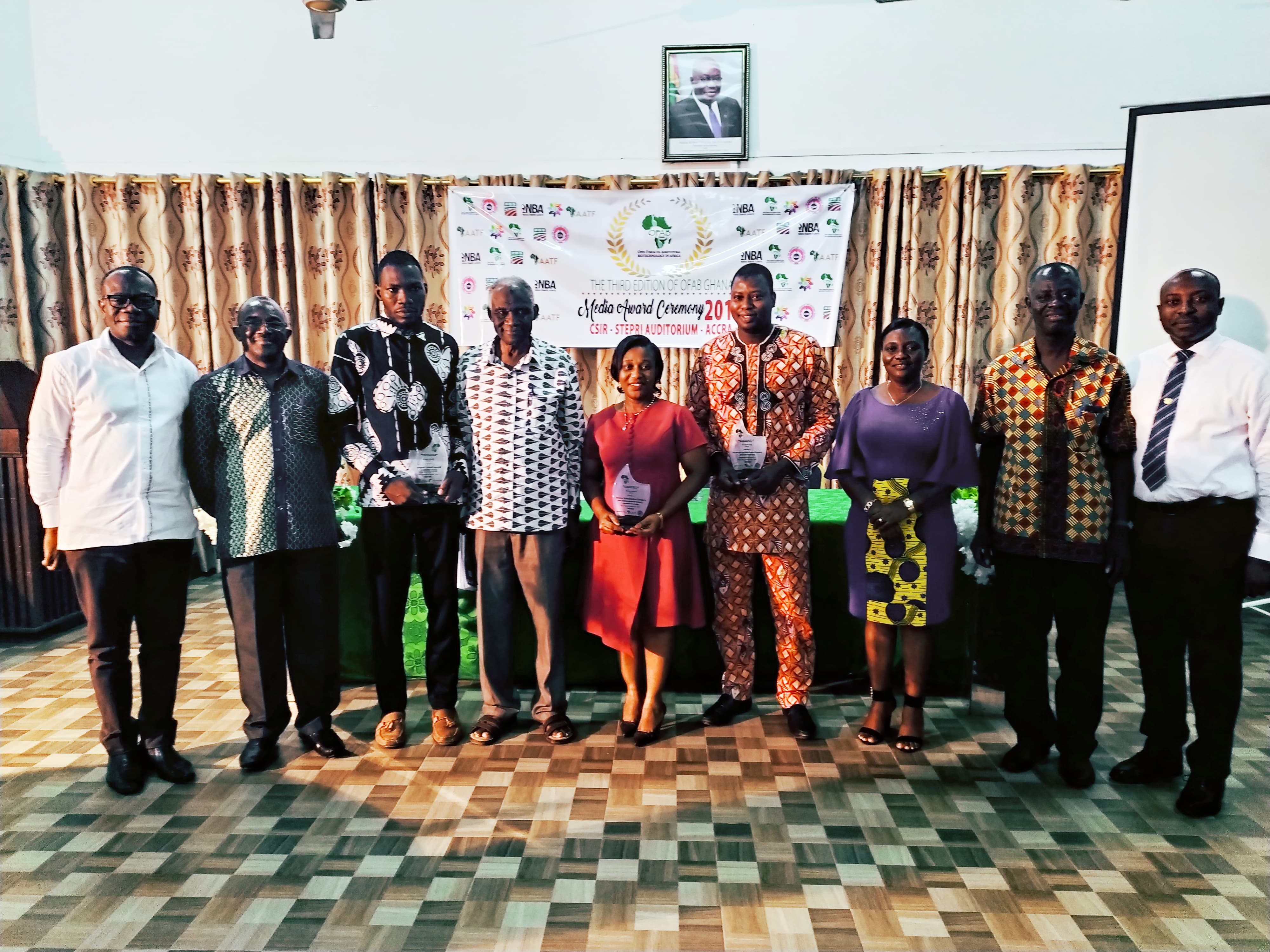
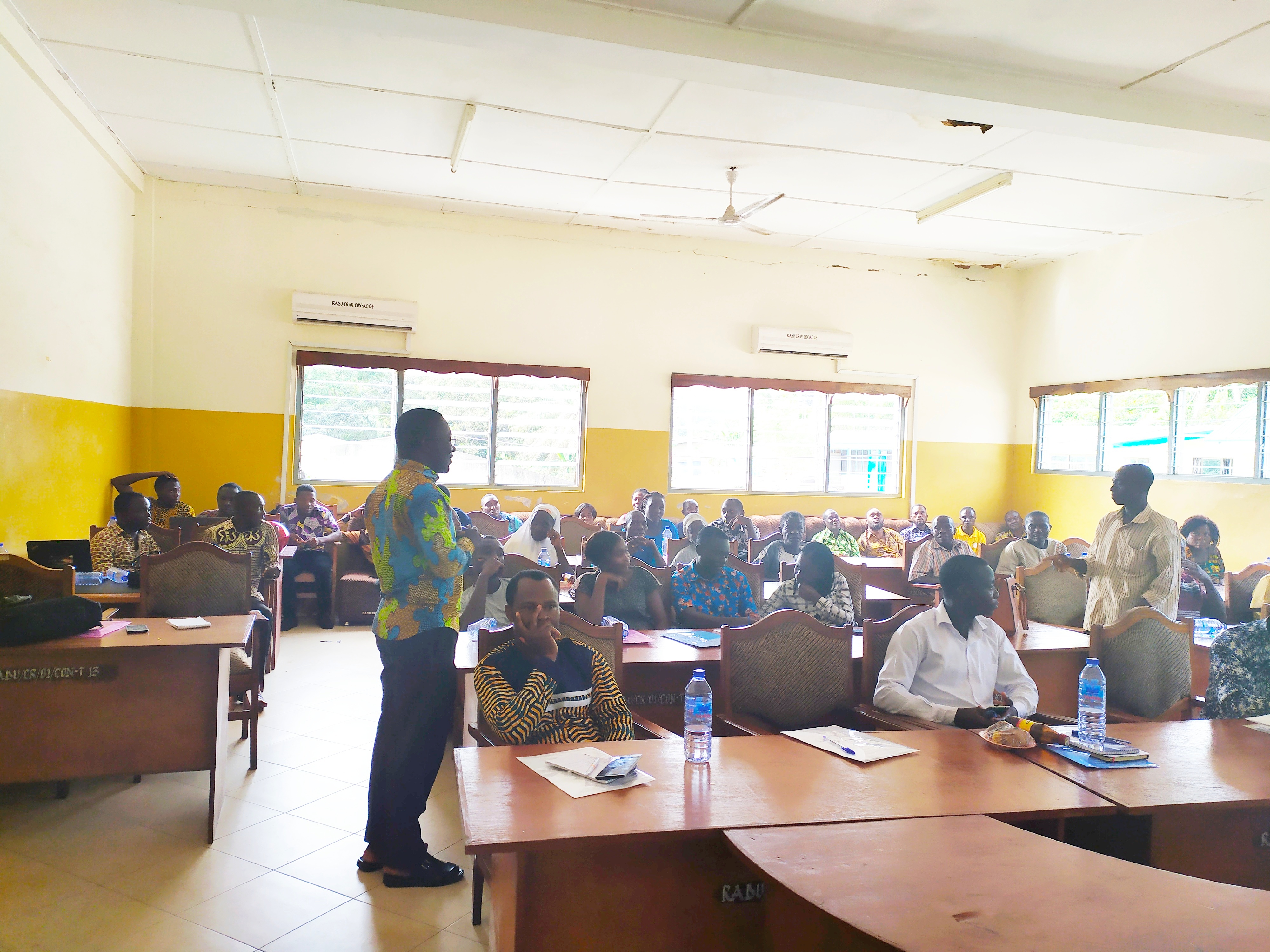
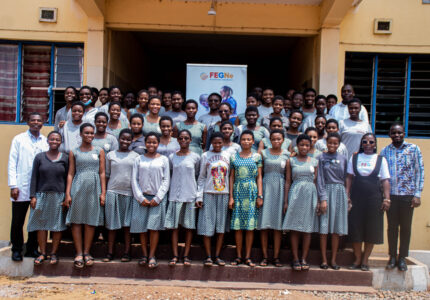
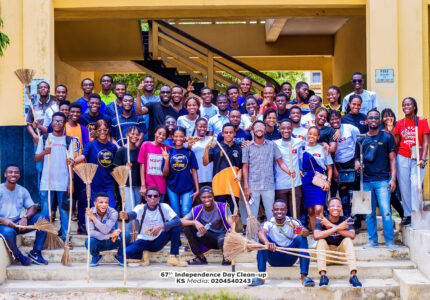
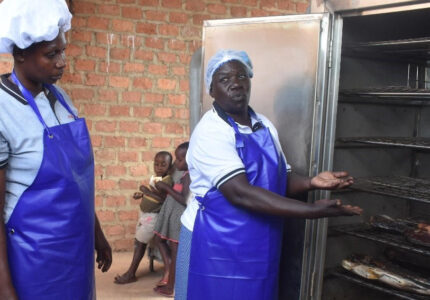
Michael Doe
There’s so much money in the soil and apparently people ( youths ) do not want to get their hands dirty
Wonder YAO KPORHA
Wonderful.
Actually, he was my roommate.
Pizzaro Mandela Sheriff
Great story for all of us to learn from.
Duncan
Great story. The education system is actually not helping students to be more practical but Aaron’s story should inspire many to take the first, even if on a small scale.
I’ll love visit his farm someday.
Thank you for this piece ????